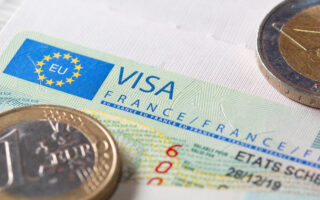Social charges in France
Financial expert Bill Blevins looks at social charges – another form of tax in France
Taxation in France is notoriously complex, and social charges are a good example of this. Although not a tax by name, they are very much a tax by nature. Not to be confused with social security, which is entirely different, social charges are levied on most types of income on top of income tax. Indeed, they actually raise more money for the government than income taxes.
RATES
Earned income (salaries and unemployment benefits) is liable to social charges at a rate of 8%. The social charges are applied to 97% of earned income, ie you get a deduction of 3% for expenses.
For pension income (retirement or disability), the social charges total 7.1%, and apply to 95% of the gross amounts received. Social charges are not payable on UK pensions provided you are over the UK state retirement age and thus covered by the UK Form S1 (formerly E106) on a permanent basis or, if below retirement age, covered by the Form S1 on leaving the UK. Form S1 on leaving the UK allows you to avoid paying the social charges for periods of up to two and a half years.
Unearned income, such as rental and investment income and capital gains, is charged at a total rate of 15.5% on the net taxable income.
There are no allowances on reliefs other than being able to deduct a proportion of the social charges payable on income taxed at the scale rates against earned or pension income.
The social charges are actually made up of four elements: the contribution sociale généralisée (CSG); contribution pour le remboursement de la dette sociale (CRDS); prélèvement sociaux and contribution additionnelle (PS); and revenu de solidarité active (RSA), as shown below.
Salaries and unemployment benefits (on 97% of gross)
CSG 7.5% CRDS 0.5% PS 0% RSA – Total 8%
Retirement or disability pensions (on 95% of gross)
CSG 6.6% CRDS 0.5% PS 0% RSA – Total 7.1%
Investments, bank interest, annuities, rental income and capital gains
CSG 8.2% CRDS 0.5% PS 4.5% RSA 2.3% Total 15.5%
Paying social charges
Social charges are paid in arrears. They are calculated based on the income you declare in your tax return. The French authorities calculate the amount due and send notification (avis d’imposition) of the amount payable in the autumn following the submission of your tax return. For example, your tax return for 2013 income will be submitted in 2014 (usually by the end of May). You will receive your social charges bill sometime in the autumn. The deductible portion of the social charges will be deducted from your taxable income for 2014 (tax return due in 2015).
Property owned by non-residents
Non-residents used to escape social charges, but controversially President Hollande removed this exception last year. Non-residents now have to pay social charges of 15.5% on capital gains made on selling a French property and rental income from French property.
UK residents are also liable for tax in the UK, though under the double tax treaty you do not pay tax twice – but you will pay the higher amount.
Unfortunately, the treaty exempts social charges from the definition of taxes for double tax relief purposes, so you do not receive any credit in the UK for having paid social charges in France. Since these charges are considered a social security contribution, HM Revenue & Customs will not allow unilateral relief either.
So if your UK tax liability is higher than your French one, further tax is due in the UK and you have to pay the full social charges as well.
UK rental income
There has been much confusion over whether French residents have to pay social charges, and indeed income tax, on UK rental income. There has been inconsistency across regions as each local tax office interpreted the UK/France double tax treaty in their own way. However, the French Finance Minister has now clarified the matter.
Any rental income generated from UK property is liable for tax in the UK, whether you are resident there or not. However, you have an individual personal allowance of £9,440. If you and your spouse have no other UK source income, and your rental income is below your combined allowance, then you will have no tax to pay in the UK.
The UK/France double tax treaty serves to avoid double taxation. Credit is due in France for the equivalent amount of French tax and social charges, “provided the resident of France is subject to UK tax in respect of that income”. The government has now confirmed that if no tax has been paid in the UK, French tax and social charges are payable on UK rental income. It is likely that the French authorities’ interpretation of the double tax treaty will be challenged in the courts since the income being “subject to UK tax” or taxable in the UK does not necessarily imply that a tax liability arises in the UK.
Government service pensions
UK pension income received by French residents is generally taxable in France and not the UK, with one exception – government service pensions. If a pension arises from government employment, only UK tax is always payable regardless of the country of residence, unless there has been a transfer out before the pension commences (and usually before age 59).
You still need to declare your government pensions in France though, because, although it is not taxable, it is taken into account when determining the rate of tax payable on your other income.
Local tax offices therefore tend to include government service pension income when calculating your social charges for the year. However, this is a grey area. Some people are charged, others are not; some request and receive refunds, others are turned down. The government has yet to provide certainty on this issue, though a decision is expected. Based on the actual wording of the double tax treaty, social charges should strictly not be payable and it is likely that the position taken by the French authorities will be challenged in the courts if they continue imposing social charges on government service pensions.
In any case, though, if you have Form S1, you are not liable for social charges on any of your UK pension income, including government service pensions.
When you add social charges on top of income taxes, your tax bill in France may be rather high. However, there are compliant arrangements in France that can lower your tax liabilities on your savings and investments, sometimes significantly. You should always seek professional advice on tax in France, both to make sure you are aware of all the latest tax rules and that you hold your savings and assets in the most tax-efficient way.
www.blevinsfranks.com
The tax rates, scope and reliefs may change. Any statements concerning taxation are based upon our understanding of current taxation laws and practices which are subject to change. Tax information has been summarised; an individual should take personalised advice.
Share to: Facebook Twitter LinkedIn Email


